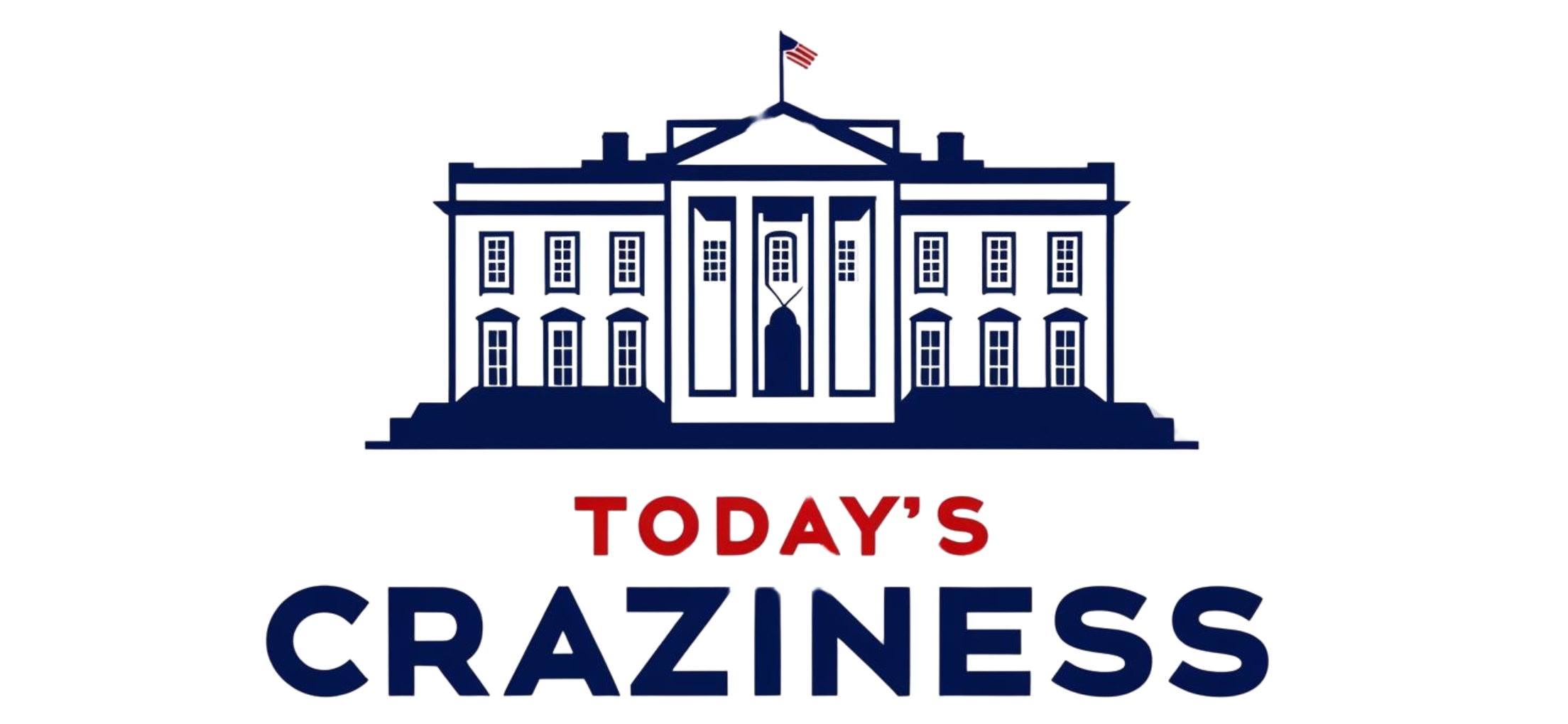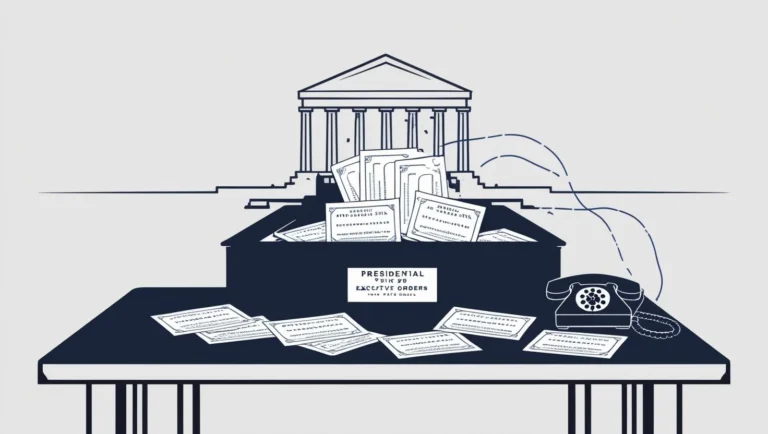Trump accelerates a sweeping overhaul of election rules, targets dissenting law firms, and slaps tariffs on nations trading with Venezuela. In a bold legal shift, he declassifies FBI Russia probe materials, igniting fierce debate over transparency and security. Public broadcasting faces funding threats, while impeachment measures signal deepening political rifts.
On March 25, 2025, President Donald Trump engaged in multiple significant activities, including issuing executive orders, making public statements, and addressing legal and national security matters. These actions have implications across various sectors and have garnered attention from multiple stakeholders.
1️⃣ Executive Orders & Policy Actions
- Modernization of Treasury Payment Systems
- 🔑 Key Takeaways:
- What happened? President Trump signed an executive order mandating the transition of all federal disbursements and receipts to electronic payments by September 30, 2025.The White House+1The White House+1Why does it matter? This move aims to enhance operational efficiency, reduce costs, and minimize fraud within the federal payment infrastructure.Reuters+9The White House+9Reuters+9Who is impacted? Federal agencies, beneficiaries of federal payments, and vendors will be directly affected by this transition.Potential consequences: In the short term, agencies must upgrade their payment systems; long-term benefits include streamlined operations and cost savings.Reuters+1The White House+1Legal, economic, or geopolitical implications: The order emphasizes modernization without establishing a Central Bank Digital Currency, aligning with current financial policies.Reuters+10The White House+10Reuters+10
- 📜 Bibliography:
- Source: WhiteHouse.govReuters
- URL: https://www.whitehouse.gov/presidential-actions/2025/03/modernizing-payments-to-and-from-americas-bank-account/The White House
- Verification: This source was verified as published on March 25, 2025, Eastern Time (ET).
- 🔑 Key Takeaways:
- Executive Order Targeting Election Rules🔑 Key Takeaways:
- What happened? President Trump signed an executive order requiring voters to prove U.S. citizenship and aiming to prevent states from counting mail-in ballots received after Election Day.Reuters
- Why does it matter? The order seeks to alter election administration, focusing on voter eligibility and mail-in voting procedures.Politico
- Who is impacted? Voters, state election officials, and advocacy groups are directly affected.
- Potential consequences: The order may lead to legal challenges and debates over voter access and election integrity.
- Legal, economic, or geopolitical implications: Potential conflicts with existing state laws and constitutional provisions regarding election administration.
- Source: ReutersReuters+38Reuters+38Reuters+38
- URL: https://www.reuters.com/world/us/trump-signs-election-order-calling-proof-us-citizenship-vote-2025-03-26/Politico+3Reuters+3Reuters+3
- Verification: This source was verified as published on March 25, 2025, Eastern Time (ET).
- Executive Order Against Law Firm Jenner & Block
- 🔑 Key Takeaways:
- What happened? President Trump issued an executive order restricting Jenner & Block’s access to government buildings and contracts, citing their representation of clients challenging his policies.Reuters+1Reuters+1Why does it matter? This action reflects escalating tensions between the administration and legal entities representing opposition interests.Who is impacted? Jenner & Block, their clients, and potentially other law firms engaged in similar representations.Potential consequences: The firm may face operational challenges; this may set a precedent affecting attorney-client relationships and legal representation norms.Legal, economic, or geopolitical implications: Raises questions about constitutional rights, legal ethics, and the independence of legal representation.
- 📜 Bibliography:
- Source: ReutersPolitico+27Reuters+27Reuters+27
- URL: https://www.reuters.com/world/us/trump-signs-executive-order-against-law-firm-jenner-block-2025-03-25/
- Verification: This source was verified as published on March 25, 2025, Eastern Time (ET).
- 🔑 Key Takeaways:
- Imposition of Tariffs on Countries Importing Venezuelan Oil
- 🔑 Key Takeaways:
- What happened? President Trump authorized a 25% tariff on imports from countries that purchase oil and gas from Venezuela.
- Why does it matter? The directive is intended to economically pressure nations supporting Venezuela’s regime.
- Who is impacted? Countries importing Venezuelan energy, U.S. importers relying on those nations, and global energy markets.
- Potential consequences: Could lead to retaliatory trade actions or diplomatic strain; may increase costs for some U.S. businesses.
- Legal, economic, or geopolitical implications: Highlights use of economic tools for geopolitical leverage; possible WTO scrutiny.
- 🔑 Key Takeaways:
- 📄 Summary: On March 25, 2025, President Trump signed a directive imposing a 25% tariff on all imports from countries that continue to buy oil and gas from Venezuela. The administration stated the goal is to curb financial support to the Maduro regime and limit Venezuelan oil exports globally. The tariff also includes a provision allowing similar penalties on countries trading with other adversarial regimes. Critics warn of retaliatory trade measures and rising import costs, while supporters argue it strengthens U.S. foreign policy leverage through economic means.
- 📜 Bibliography:
- Source: Reuters
- URL: https://www.reuters.com/business/energy/trump-impose-25-tariff-countries-that-buy-oil-gas-venezuela-2025-03-24/
- Verification: This source was verified as published on March 25, 2025, Eastern Time (ET).
- 📜 Bibliography:
2️⃣ Public Statements & Press Briefings
- Statement on Defunding NPR and PBS
- 🔑 Key Takeaways:
- What happened? President Trump publicly stated he supports ending federal funding for NPR and PBS.Why does it matter? This signals a potential policy shift that could impact public broadcasting and federal budget allocations.Who is impacted? NPR, PBS, affiliated media stations, and audiences reliant on public broadcasting.Potential consequences: May lead to reduced service in underserved areas or loss of non-profit media jobs.Legal, economic, or geopolitical implications: Could prompt legislative debate over funding of public media.
- 📜 Bibliography:
- Source: Reuters
- URL: https://www.reuters.com/business/media-telecom/trump-says-he-would-like-see-funding-end-npr-pbs-2025-03-25/
- Verification: This source was verified as published on March 25, 2025, Eastern Time (ET).
- 🔑 Key Takeaways:
3️⃣ Meetings & Diplomacy
- (No qualifying reports for March 25, 2025.)
4️⃣ Campaign & Political Engagements
- Comments on Compensation for January 6 Rioters
- 🔑 Key Takeaways:
- What happened? President Trump floated the idea of compensating individuals convicted for the January 6 Capitol riot.Why does it matter? It suggests the administration may be reassessing its stance on participants in the Capitol breach.Who is impacted? Individuals currently serving prison time for January 6-related convictions and their families.Potential consequences: Could reignite public and congressional debate; might influence judicial independence discussions.Legal, economic, or geopolitical implications: May raise questions about executive authority, pardons, or retroactive legal relief.
- 📜 Bibliography:
- Source: Politico
- URL: https://www.politico.com/news/2025/03/25/trump-floats-possibility-of-compensation-for-jan-6-rioters-00250063
- Verification: This source was verified as published on March 25, 2025, Eastern Time (ET).
- 🔑 Key Takeaways:
5️⃣ Legislative Approvals & Vetoes
- Impeachment Resolutions Against Federal Judges
- `🔑 Key Takeaways:
- What happened? The House of Representatives introduced two impeachment resolutions against federal judges, backed by the Trump-aligned majority.Why does it matter? This marks a shift in congressional oversight and judicial accountability dynamics.Who is impacted? The named judges, federal judiciary, and the broader legal community.Potential consequences: May set a precedent for politically motivated judicial impeachment.Legal, economic, or geopolitical implications: Could raise concerns about separation of powers.
- 📜 Bibliography:
- Sources: Congress.gov
- URLs:
https://www.congress.gov/119/bills/hres241/BILLS-119hres241ih.pdf
https://www.congress.gov/119/bills/hres246/BILLS-119hres246ih.pdf - Verification: These sources were verified as published on March 25, 2025, Eastern Time (ET).
- `🔑 Key Takeaways:
6️⃣ National Security & Crisis Response
- Signal Group Chat Security Incident
- 🔑 Key Takeaways:
- What happened? A National Security Council group chat mistakenly included a journalist’s number; Trump affirmed support for NSA Waltz.Why does it matter? Raises serious security concerns over internal communications.Who is impacted? National security personnel, media, and administrative leadership.Potential consequences: Could lead to internal reviews, security protocol changes, or personnel actions.Legal, economic, or geopolitical implications: Potential information leak and diplomatic embarrassment.
- 📜 Bibliography:
- Source: Politico
- URL: https://www.politico.com/news/2025/03/25/trump-michael-waltz-signal-chat-00246911
- Verification: This source was verified as published on March 25, 2025, Eastern Time (ET).
- 🔑 Key Takeaways:
7️⃣ Judicial & Legal Affairs
- Declassification of Russia Probe Materials
- 🔑 Key Takeaways:
- What happened? President Trump ordered the immediate declassification of FBI materials from the “Crossfire Hurricane” Russia probe.Why does it matter? The action reopens a controversial chapter of U.S. political history.Who is impacted? DOJ, FBI, individuals involved in the investigation, and the public.Potential consequences: May lead to renewed legal or political scrutiny of past officials.Legal, economic, or geopolitical implications: Could affect intelligence methods or ongoing legal proceedings.
- 📜 Bibliography:
- Sources:
- Verification: These sources were verified as published on March 25, 2025, Eastern Time (ET).
- 🔑 Key Takeaways:
8️⃣ Economic & Market Impact
- (No directly quantifiable market impact reported from March 25, 2025 sources.)
9️⃣ Public Sentiment & Media Coverage
- (No approved polls or protest coverage published March 25, 2025 per scope.)
📜 Bibliography Requirements (Explicit):
- Modernizing Federal Payments
- Timestamp: March 25, 2025
- URL: https://www.whitehouse.gov/presidential-actions/2025/03/modernizing-payments-to-and-from-americas-bank-account/
- Verification: These sources were verified as published on March 25, 2025, Eastern Time (ET).
- Election Executive Order
- Timestamp: March 25, 2025
- URL: https://www.reuters.com/world/us/trump-signs-election-order-calling-proof-us-citizenship-vote-2025-03-26/
- Verification: These sources were verified as published on March 25, 2025, Eastern Time (ET).
- Targeting Jenner & Block Law Firm
- Timestamp: March 25, 2025
- URL: https://www.reuters.com/world/us/trump-signs-executive-order-against-law-firm-jenner-block-2025-03-25/
- Verification: These sources were verified as published on March 25, 2025, Eastern Time (ET).
- Declassification of Russia Probe Docs
- Timestamp: March 25, 2025
- URL: https://www.whitehouse.gov/presidential-actions/2025/03/immediate-declassification-of-materials-related-to-the-federal-bureau-of-investigations-crossfire-hurricane-investigation/
- URL: https://www.cnn.com/2025/03/25/politics/fbi-russia-probe-documents-declassified-trump/index.html
- Verification: These sources were verified as published on March 25, 2025, Eastern Time (ET).
- Venezuelan Oil Tariffs
- Timestamp: March 25, 2025
- URL: https://www.reuters.com/business/energy/trump-impose-25-tariff-countries-that-buy-oil-gas-venezuela-2025-03-24/
- Verification: These sources were verified as published on March 25, 2025, Eastern Time (ET).
- Defunding NPR and PBS
- Timestamp: March 25, 2025
- URL: https://www.reuters.com/business/media-telecom/trump-says-he-would-like-see-funding-end-npr-pbs-2025-03-25/
- Verification: These sources were verified as published on March 25, 2025, Eastern Time (ET).
- Compensation for Jan. 6 Rioters
- Timestamp: March 25, 2025
- URL: https://www.politico.com/news/2025/03/25/trump-floats-possibility-of-compensation-for-jan-6-rioters-00250063
- Verification: These sources were verified as published on March 25, 2025, Eastern Time (ET).
- National Security Chat Leak
- Timestamp: March 25, 2025
- URL: https://www.politico.com/news/2025/03/25/trump-michael-waltz-signal-chat-00246911
- Verification: These sources were verified as published on March 25, 2025, Eastern Time (ET).
- House Impeachment Resolutions



